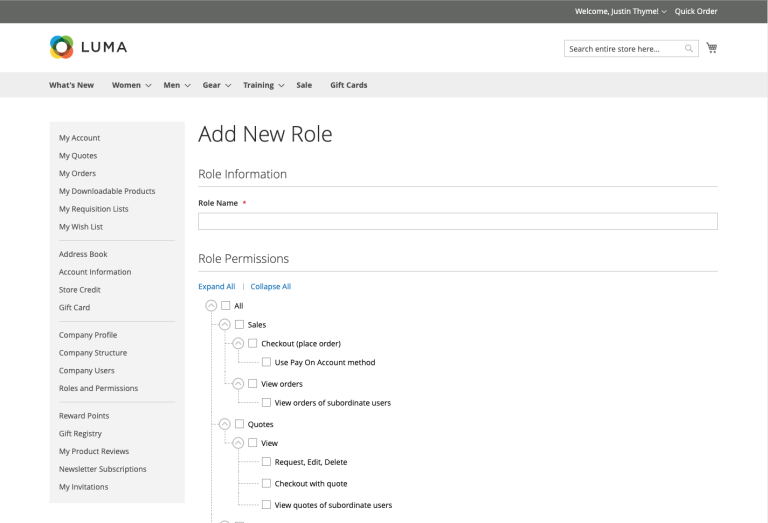
The future of Adobe and Magento community engineering is a topic, to be sure. This is somewhat common when a large brand like Adobe acquires a smaller brand rooted in Open Source, like Magento. Taking into account the passion, power and the value that community brings to the platform, closing this “source” would appear, to me, unrealistic and not very smart business. From my perspective, I would encourage everyone to keep contributing because it helps fuelling Magento and its distinct differences with other eCommerce platforms. As long as Magento continues to sign up more customers all over the world, it seems like open source program works really well.
We have the contributor points system, and it works well to some extent. But it also has some issues that hopefully will be addressed soon. It’s not a secret that being in the top 10 contributors’ chart is a major motivational factor for many contributors, and it’s absolutely normal. But there are still many cases when one contributor might spend a couple of hours for achieving this position, and another developer merely gets there with a new important feature that took 30+ hours of work. So, I’m sure that there will be a chance to improve the rewarding system by considering the quantity and the efforts together with value.
In closing, I want to thank community engineers and maintainers for their patience, trust, confidence and hard work! I know this year will bring us more great adventures and cool results.
I would definitely say yes! There’s still much to be done, and we in the Community Engineering realize how helpful the Magento community is in improving the platform. Moreover, we already have some interesting stuff! The initiative of the core migration to the PHP 8 has already started. It’s a matter of a couple of preparation rounds for baking a good backlog. If you want to stay in touch, please join the #php8 channel in the Community Engineering Slack.
Is Atwix still going to proceed with the active contribution campaign?
Do you think Adobe will close the Magento open source program soon?
Also, it is worth mentioning that a Partner Acceleration Program allowed partner-agencies to participate in Magento core development more actively. This program and the initiative from other contributors allowed to bring a lot of GraphQL coverage to the platform. There are still some things left to be covered, but now we finally may say that Magento 2 is a headless platform. It doesn’t matter that PWA Studio is still in development. We have a great API and the opportunity to use any storefront we like! And I am proud that most of this coverage has been delivered by the community.
This question is very organic, but the projects did not disappear anywhere. They were simply merged to the main Magento repository. The key reason is the simplicity of the project maintenance from the development perspective. I also must admit that it’s much easier to have everything in one project than keeping 3+ separate Magento installations for working on different projects. Dedicated backlogs have replaced the separate repositories. You still may find tasks for each of the mentioned projects in the “Projects” tab of the main repository (a corresponding label usually marks the project-related issues).
We continuously see improvements in the system. In the second half of the last year, we had the “Priority” and “Severity” labels introduced for pull requests. These labels allow prioritizing which pull requests will be reviewed and merged first. This approach has speeded up the delivery of the most crucial solutions from the community.
Do you think we will have more interesting open-source projects from Magento this year?
You are the top 1 Community Engineering maintainer of 2020. How much of your free/working time did it take to process all the PRs?
Thank you for reading. If you have assumptions or ideas you want to reflect on, please, feel free to share them in the comments below.
What is the most exciting thing in the Magento open source world in 2020?
Recently many people asked for my opinion on how things were going in the Magento engineering community. While 2020 was not as productive as 2019 for a variety of obvious reasons (like global pandemic), it was still a very cool year when reflecting on the new, powerful features delivered by the community (during a global pandemic). The following summary represents my thoughts on what we have accomplished, as well as useful insights based on the questions I received or observations I have made. Enjoy the read!
Absolutely! Atwix has many great minds who love to contribute. So I wouldn’t name it a “campaign” but rather an intention of our open source ambassadors (Psst! We are also continually looking for new ambassadors). We also hope to take an active part in organizing the new contribution days this year.
Compared to 2019, in 2020 we had a fever number of community contributions. The main reason is apparent. We did not come together in-person. Traditionally, contribution days were concentrated events where the most brainpower and output was formed in terms of new deliverables to the Magento core. In 2020, we only had a few events, compared to the number we participated in during previous years. In spite of that, during the year there were more than 2k pull requests to the main Magento repository (and almost 2k additionally to the DevDocs!).
I like the new idea of the global contribution days, 24 hours of coding, and other formats that were not so usual previously. All these attempts to bring people together online no matter what, were just fantastic! I hope we may finally meet offline this year on some contribution day, but am also open to the new online formats.
I must say that being a maintainer is a big responsibility. I would also say that it is very rewarding. To me personally it allows staying in touch with the community, keep my skills sharp, and help Magento grow. During the last year, more than 50% (or even 60%) of all the pull requests were processed by the maintainers. So to some extent, we are responsible for “gatekeeping” the quality of solutions from the community. I appreciate the opportunity to help people writing better code and understanding the best practices. But sometimes it’s really exhausting. In general, I’ve been spending around 1-1.5 hours of my free time every day (including the weekends and vacations!). But it’s great to realize that you may be helpful for many people considering the situation in 2020 when you are “bounded” to your home most of the time.
Previously there were some separate interesting open-source projects from Magento like MSI, Adobe Stock Integration, MFTF. Most of the mentioned repositories are closed now. Does that mean that there is no interest in the separate projects anymore?
What would you change in the Magento open-source program processes?





